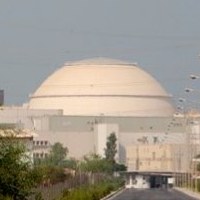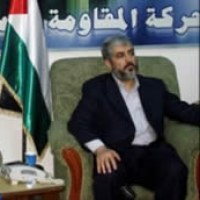![]()
Mon, Jan 31, 2011 | WikiLeaks
Israel Discusses Growing Number of Terrorist Attacks
Israel suffered three attacks within the span of one hour in an effort to break the calm (“tahdiya”) and derail the impending disengagement, according to Brigadier General Eitan Dangot, Military Secretary to Defense Minister Mofaz, who met with the Ambassador and Acting DATT on July 13. Hizballah fired at the IDF post at Rosh Hanikra, causing no injuries. A PIJ member drove a truck laden with gas canisters into the Shavei Shomron settlement, injuring only himself. A PIJ suicide bomber detonated an explosive charge outside a Netanya mall, killing four and wounding 91 Israelis. As a result the IDF resumed operations against PIJ in the West Bank in efforts to prevent future terror attacks on Israel, as well as to stop the increasing violence prior to the disengagement. As disengagement approaches, Dangot explained, the potential negative impact of successful attacks increases, particularly in its effect on domestic public opinion and support.
Source: WikiLeaks
2005-07-15 T15:24:00
S E C R E T SECTION 01 OF 03 TEL AVIV 004403
SIPDIS
E.O. 12958: DECL: 07/14/2015 TAGS: PREL, KWBG, KPAL, PTER, IS, GAZA DISENGAGEMENT, ISRAELI-PALESTINIAN AFFAIRS
SUBJECT: ISRAELI MOD DISCUSSES DISENGAGEMENT AND GROWING NUMBER OF TERRORIST ATTACKSClassified By: Ambassador Daniel C. Kurtzer for reasons 1.4 (b) and (d)
1. (S) Summary: Israel suffered three attacks within the span of one hour in an effort to break the calm (“tahdiya”) and derail the impending disengagement, according to Brigadier General Eitan Dangot, Military Secretary to Defense Minister Mofaz, who met with the Ambassador and Acting DATT on July 13. Hizballah fired at the IDF post at Rosh Hanikra, causing no injuries. A PIJ member drove a truck laden with gas canisters into the Shavei Shomron settlement, injuring only himself. A PIJ suicide bomber detonated an explosive charge outside a Netanya mall, killing four and wounding 91 Israelis. As a result the IDF resumed operations against PIJ in the West Bank in efforts to prevent future terror attacks on Israel, as well as to stop the increasing violence prior to the disengagement. As disengagement approaches, Dangot explained, the potential negative impact of successful attacks increases, particularly in its effect on domestic public opinion and support. Dangot provided a summary of the July 12 Security Cabinet meeting, and noted that additional meetings are scheduled to take place this month. The Prime Minister expressed his vision that the disengagement would result in the end of the military occupation of Gaza. The cabinet approved an MoD request to solicit the international community for funding for crossing facilities; and the cabinet agreed that areas evacuated within the northern West Bank would remain classified as “area C” for the near term. End summary.
————-
PIJ CAMPAIGN?
————-
2. (S) Dangot provided a brief summary of the July 12 attacks. Dangot stated that all three attacks took place within the span of one hour, and were likely linked. PIJ, he stated, is attempting to provoke a strong Israeli response in efforts to destroy the “tahdiya” or calm. On July 12:
— A gunman fired several rounds at the IDF position at Rosh Hanikra. The IDF did not respond, he stated, and no one was injured in the attack. The IDF noted that Hizballah had vacated posts along the southern border with Israel prior to the attack, suggesting the link to Hizballah.
— A Palestinian drove a small pickup truck loaded with gas canisters into the Shavei Shomron settlement. The driver had waited for someone to exit the settlement and drove through the open gate. He detonated the explosive device near the settlement’s kindergarten, which was no longer in session. The Palestinian was severely burned; there were no other casualties. The IDF, Dangot stated, believes that wanted PIJ leader Louis Saadi or his deputy was involved in planning the attack.
— A suicide bomber detonated an explosive charge near a mall in Netanya, killing four Israelis, severely wounding at least six others, and causing a total of 91 to seek medical treatment. PIJ claimed responsibility for the attack. The IDF believes that Tulkarm area PIJ commander Louay Saadi was behind the attack. Saadi, who masterminded the Stage Club attack in Tel Aviv on 25 February, is in hiding. Saadi’s cell operates in the Tulkarm area, including the villages of Atil, Ilar and Saida.
3. (S) Dangot stated that PIJ-sponsored attacks are increasing. In Gaza, the IDF has tracked PIJ connected incidents for the past weeks and has noted a marked increase in mortar, Qassam rocket, explosive charge and shooting attack against Israelis. These attacks, he explained, are not the work of breakaway PIJ cells, but part of a campaign orchestrated by the PIJ headquarters in Damascus. Damascus is pushing the field to conduct attacks against Israel, said Dangot.
———–
PA Inaction
———–
4. (S) The IDF received a number of indications that Saadi was planning terror attacks, and passed Saadi’s name to the PA several months ago. The GOI requested that PA Minister of Interior Nasir Yusif arrest him. To date, said Dangot, the PA has taken little action against the organization. In Tulkarm, eleven PIJ fugitives declined to sign a declaration ending terror attacks and refused to surrender their weapons to the PA. In response, the PA centralized them in Tulkarm and provided them shelter at night. Moreover, Dangot noted that Mahmud Abbas failed to clearly blame PIJ, during his condemnation of yesterday’s terror attack.
—————-
Time Running Out
—————-
5. (S) As disengagement approaches, Dangot explained, the potential negative impact of successful attacks increases, particularly in its effect on domestic public opinion and support. Moreover, such attacks decrease Israel’s maneuver space, and make risk-taking in security areas more difficult, as in the case of Bethlehem, with its close proximity to Jerusalem. Finally, the IDF does not want to begin disengagement under the back-drop of increasing violence.
6. (S) During discussions on transferring security responsibility, the IDF warned the PA that it would reenter areas transferred to PA security responsibility if the Palestinians failed to control attacks on Israelis emanating from them. As a result, the GOI decided last night to take action against the PIJ, acting where the PA does not. Early on July 13, the IDF temporarily reentered Tulkarm, and began a series of arrests. During the initial stages of the operation, PA security forces fired on, and lightly wounded, two soldiers. When returning fire, the IDF killed two PA security forces members.
————————
Security Cabinet Meeting
————————
7. (S) Dangot provided a summary of the previous day’s Security Cabinet meeting, stating the group would hold two or three more meetings on disengagement issues over the next month. During the July 12 discussions, the Prime Minister explained his vision that disengagement would mean the end of the military occupation in Gaza. Once completed, there would be no symbols of military occupation, including IDF presence on the Philadelphi Strip.
8. (S) The Security Cabinet discussed potential security arrangements concerning the ports ) sea, air, and land ) but no decisions were made. It was clear, Dangot stated, that the IDF would, over time, leave the Philadelphi Strip, following assessment of the effectiveness of the Egyptian border deployment, and the effectiveness of the PA security forces in combating smuggling and cross-border attacks. Dangot stated that Egypt and Israel are still discussing the “responsibility” clause, which is holding up agreement on the deployment of border guards.
9. (S) The Security Cabinet looked also at several options concerning the Rafah crossing ) leave it as is, shift cargo operations to Nitsana, or move to Kerem Shalom. No decisions were made. Dangot stated that the GOI would look at third party supervision of customs and security arrangements, using a staged or incremental approach that would help build mutual confidence and trust.
10. (S) The Prime Minister intends to cancel the military government in Gaza, Dangott said, but needs a task force from Justice, Defense and others to explore new legal rulings on how to proceed with the Palestinians. Concerning the passage issue, the Security Cabinet agreed to an interim solution of using truck convoys between Gaza and the West Bank for door-to-door delivery of cargo in some areas. A similar system, using busses to transport people could also be adopted. Dangot added that details were not examined; a team is needed to study possible long-term solutions such as a train, sunken road, tunnel, etc.
11. (S) MoD Director-General Amos Yaron briefed the Security Cabinet on the 3-4 terminals in Gaza and some 38 crossing points for the West Bank, receiving Cabinet permission to solicit funding, estimated at some 500 million USD initially, from the international community. The cabinet also decided that the Gaza borders would be based on the 1994 map, and would include the territorial exchanges made in 1949-50.
12. (S) Concerning the West Bank, the Security Cabinet decided that there would be no change of status for the four areas containing the evacuated settlements for the time being. These areas would remain classified as “C” zones. However, the GOI would continue to coordinate issues with the PA concerning road construction or other issues. The Ambassador suggested that Israel carefully examine its position on Rafah and the Philadelphi Strip, to ensure that it had an executable exit strategy.
13. (S) Comment: Israel Defense Intelligence assesses that the Damascus PIJ headquarters is behind the Tuesday attacks, but continues to sift through information in search of a “smoking gun.” Dangot was careful to explain that renewed IDF operations would continue in the West Bank, but indicated that operations in the Gaza strip would be restrained in efforts not to fuel a new spiral of violence. Nonetheless, expanded operations against PIJ risk accidental killings of bystanders, which would surely fuel a new round of violence. Note: Meeting took place before Hamas attack that killed one in Nativ Ha’asara.
KURTZER



 RSS
RSS












#Israel Discusses Growing Number of #Terrorist Attacks | #WikiLeaks http://j.mp/hCMwdh
#Israel Discusses Growing Number of #Terrorist Attacks | #WikiLeaks http://j.mp/hCMwdh http://ff.im/x9J62
RT @CrethiPlethi: #Israel Discusses Growing Number of #Terrorist Attacks | #WikiLeaks http://j.mp/hCMwdh http://ff.im/x9J62
Greetings;
Do you not find it to be rather ironic that when a corporately controlled democracy receives a wink and a nod from the corporately controlled UN to evade a free society in order to incorporate a countries resources it’s
called a Liberator, yet, when the peoples of the evaded country sets out to form a resistance in order to protect
its countries resources, it is deemed a terrorist organization by the corporately owned medias?
The very best to you on your journey of discovery,
Travis
RT @CrethiPlethi: #Israel Discusses Growing Number of #Terrorist Attacks | #WikiLeaks http://j.mp/hCMwdh